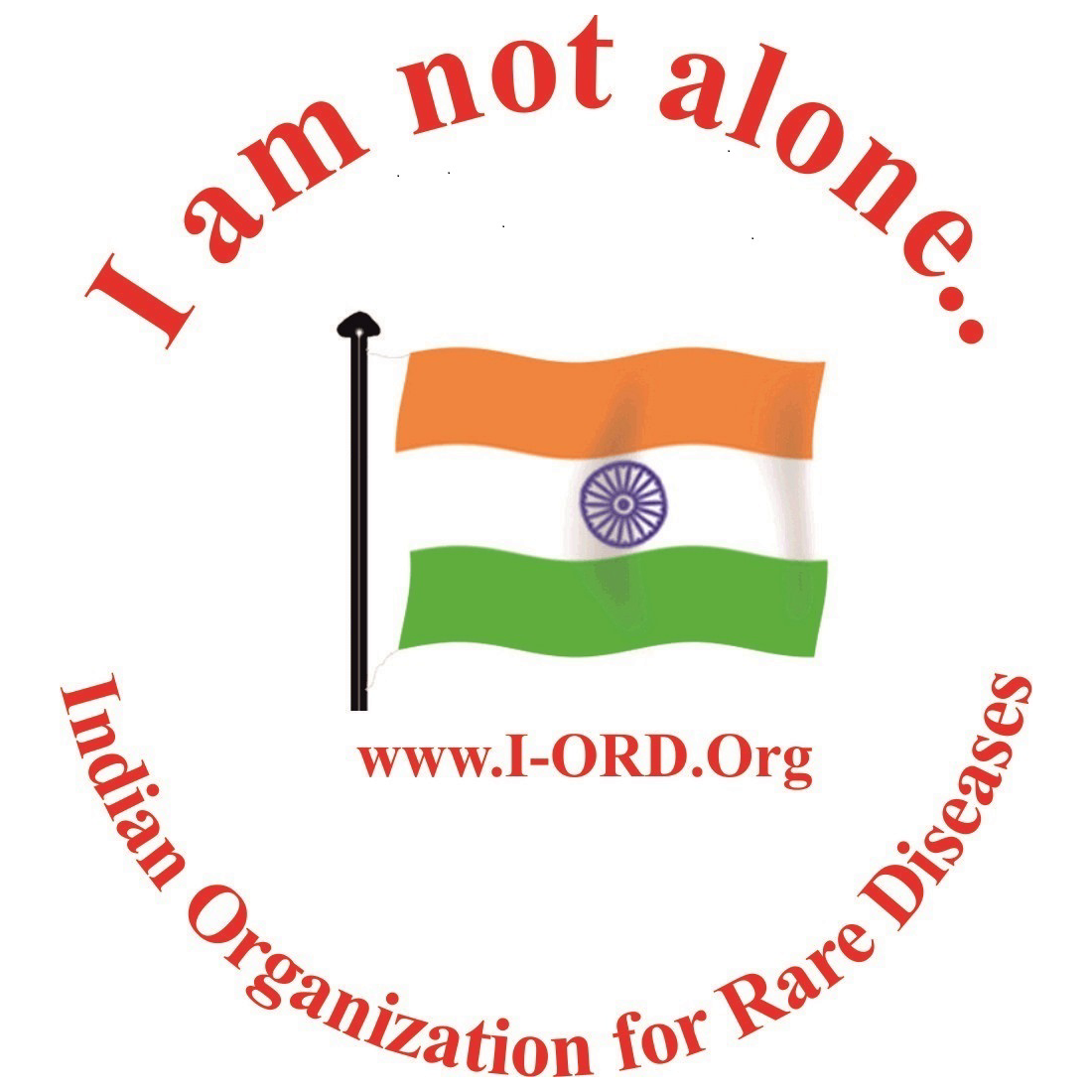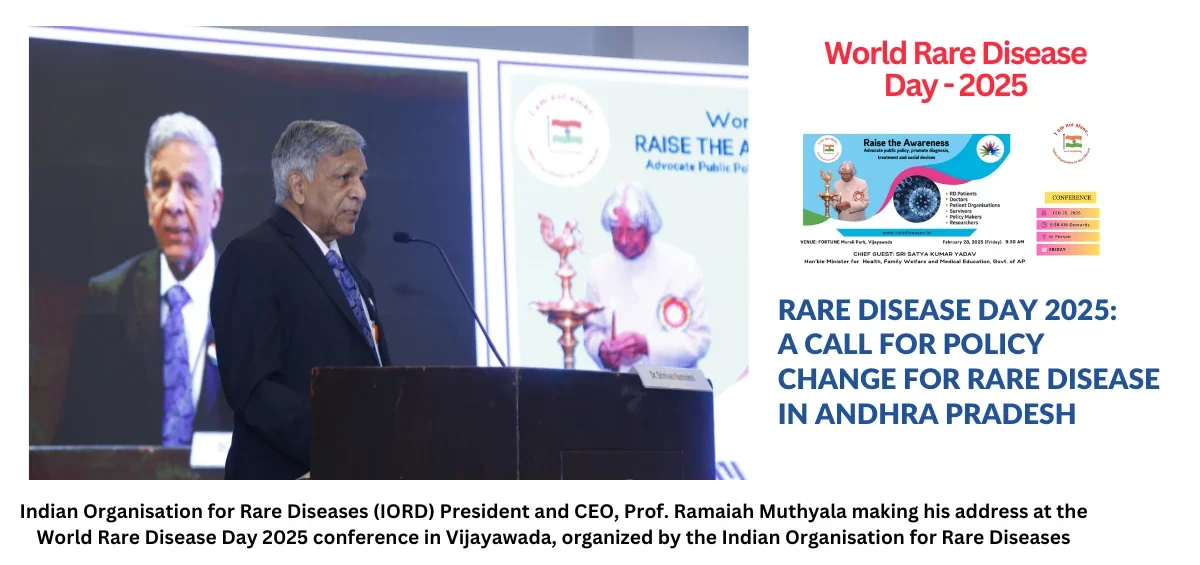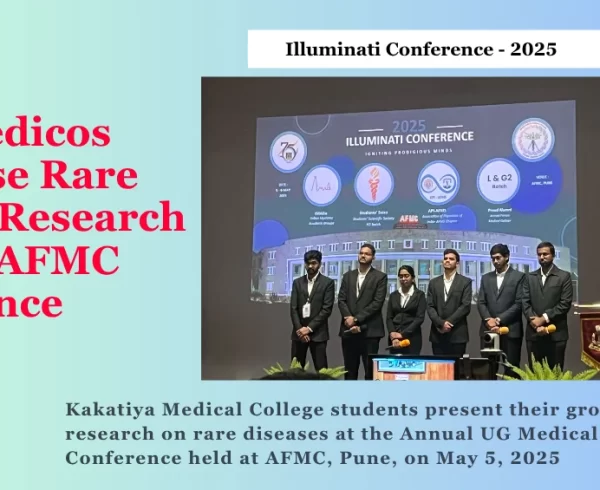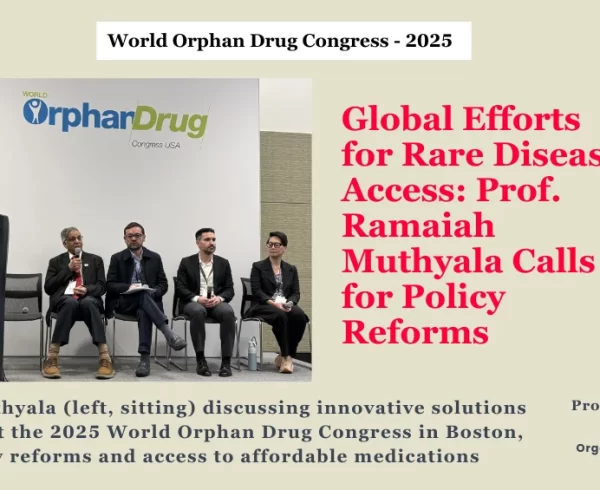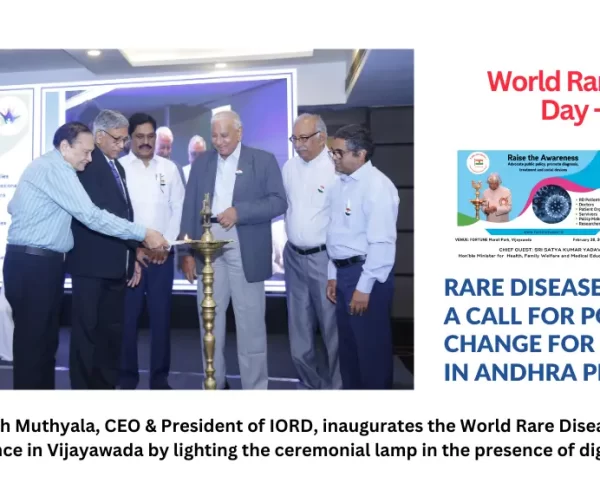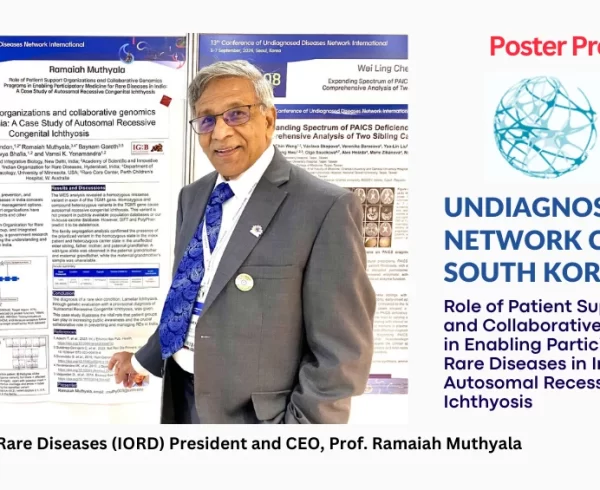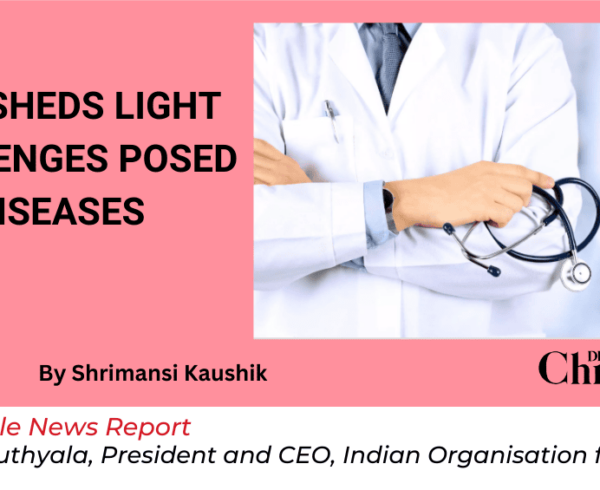This is a transcribed speech of Indian Organisation for Rare Diseases (IORD) President and CEO, Prof. Ramaiah Muthyala delivered at the World Rare Disease Day 2025 conference in Vijayawada, organized by the IORD. Check the full video here.
Today, while India celebrates National Science Day, the world celebrates Rare Diseases Day. Both are important, and we honor both. We gathered here to observe World Rare Diseases Day.
First, let me provide some background information on what and why Rare Diseases Day is essential. Rare Disease Day is a global initiative to raise awareness, advocate for better care and treatment, and generate support for everyone on a rare medical journey. It takes place on the last day of February this year, February 28th. It was first observed in 2008 by the European Organization for Rare Diseases. The date was chosen because February’s last day is a rare day on the calendar.
Rare Diseases Day has become a worldwide event in more than 154 countries. The day has helped to raise awareness, drive policy changes, and improve access to treatment. It has also helped to create more equity for people with rare diseases. You can participate in Rare Disease Day by participating in walkathons, bikeathons, press conferences, organizing fundraising events, and writing to government representatives to share your stories. It is left to your imagination and commitment to the cause.
Let me share something personal to think about.
In 1776, during the Declaration of Independence, the US government proclaimed that “all men are created equal.” It took 150 years to include women in the proclamation, making everyone equal in the United States and probably worldwide. – Recall the status of Equality’s second tallest statue, symbolizing the equality
Now I say that All, meaning men and women, are not created equal. At least 5% of them are born differently—genetically—people with rare diseases. In a civilized society like ours, 95% of people ignore them and are left behind, at least in providing healthcare. Is it fair? That is a question everyone should ask themselves.
Rare diseases do not distinguish rich, poor, men, women, religion, caste, creed, color, or country. All are equally vulnerable. Therefore, we all must work together irrespective of what we do for a living, where we live on the globe.
A combined effort is urgently needed to accomplish such a noble cause – Rare diseases. As we speak, more than 300 million people globally, specifically 90 million in India, are suffering from more than 7000 rare diseases. This number is increasing by hundreds every year. One of my friends once told me that our country has more rare disease patients than taxpayers. Sadly, more than 80% of rare diseases are genetic; out of this, 60-70% of children do not see their fifth birthday. Only 5% of the rare diseases have only treatment, no cures. Death is the endpoint in most cases.
This global situation is no different for Andhra Pradesh. With a population of 5.2 crores, the expected rare disease population AP is 25-30 lakhs. Although we donot know but there is no reason to suspect AP also has 7000 rare diseases. However only a few have been listed and less than 1000 patients have been in the national registry managed by ICMR.
The pharmaceutical industry in AP is flourishing. It is home to 200+ pharmaceutical units, one of the top three States in pharmaceutical exports worth 1 billion USD, Pharma City in Visakhapatnam houses more than 60 pharmaceutical units, Andhra Med Tech Zone is Asia’s first medical devices park in Visakhapatnam, and 128 pharmaceutical colleges produce over 11,000 highly-skilled personnel annually.
AP is a progressive state, with this rich traditions and resources, there are ample opportunities for the AP government to be proactive in becoming a leader in all aspects of rare diseases and orphan drugs.
Our request is on behalf of rare disease patients in your state and the entire country. Sir, Minister Sri Satya Kumar Yadav and the Health Secretary Sri Krishna Babu. Here are some of our thoughts for your consideration.
- Some orphan drugs are so expensive that no one can afford them—crores of rupees per patient per year! However, in some situations, the Ministry of Health provides partial financial support up to 50 lakhs once. Only a few drugs qualify for this funding. Most states do not have dedicated budgets for rare diseases, even though health is a state responsibility.
- Orphan drug API molecules are exported, and formulations are imported. This causes additional burdens, such as import taxes etc., to be added. Due to the small RD population, the pharma industry is reluctant to develop drugs to treat RD. Unlike the United States and other countries, with dedicated incentives such as orphan drug exclusivity, tax reduction, and protocol assistance for clinical studies, Indian Pharma does not get any incentives. Therefore, State and Central governments work together to draft policies promoting orphan drug accessibility and affordability.
- When pharmaceutical companies develop an orphan drug, the industry often finds it challenging to market their product due to the lack of prevalence information. The government should recognize disease-specific organizations for such information while maintaining patient registries at tertiary healthcare and diagnostic centers.
- Diagnosis odyssey—The Diagnosis of rare diseases often takes several years, involving multiple visits to multiple sites, multiple experts, and incorrect diagnoses. This experience is so common within the rare disease community that it has its name: the diagnostic odyssey.
- There are innumerable issues not being addressed adequately – The definition of rare diseases, the Natural history of the disease, lack of basic knowledge of the diseases, lack of experts, preventive methods, newborn screening, lack of medical education, professional training, and finally, insufficient funds. Due to the paucity of time to cover these aspects of rare diseases and orphan drugs, we would like to ask AP government to take action on the following items:
- Establish referral centers in district hospitals for people suffering from blood, neurological, metabolic, and other disorders. This would facilitate access to the central government-approved Rashtriya Arogya Nidhi schemes. The referral system will streamline patient care and ensure these central funds and state facilities are effectively utilized.
- Establish government-sponsored medical stores and procure Orphan drugs. Rare disease patients consume few drugs, and regular pharmacies are unlikely to keep stock. The government can procure orphan drugs, make them available at subsidized rates, and make them available to patients through Pradhan Mantri Bharatiya Janaushadhi Pariyojana.
- Establish a Centre of Excellence for Rare Diseases in Andhra Pradesh: There are already 12 centers of excellence, including one in Telangana in India, dedicated to treating rare disease patients. Given that the center’s funds are annually earmarked for treating rare diseases, it is now time for Andhra Pradesh to establish one center of excellence in the AIIMS MangalaGiri facility.
- Andhra Pradesh create a state-funded, dedicated Rare Disease Centre. This center can provide patients and other stakeholders with information such as diagnosis, treatment options, healthcare providers, prevalence data, etc. Genetic counseling and testing services for rare disease patients can be provided at free or subsidized rates, in line with existing healthcare schemes such as the NTR Vaidya Seva and Ayushman Bharat.
- Include Rare Disease Data in National Family Health Survey: To gather valuable data on rare diseases in households, Andhra Pradesh advocates for including rare disease-related questions in the next National Family Health Survey (NFHS) round.
